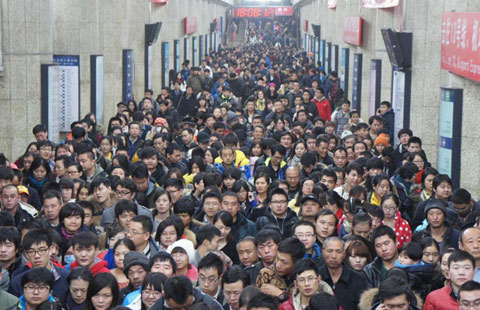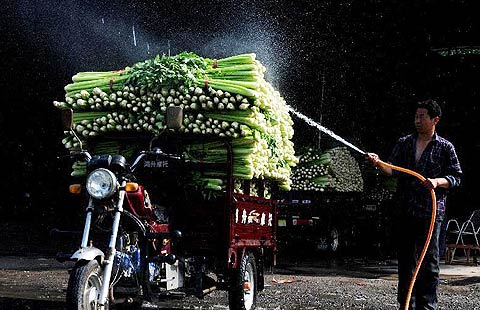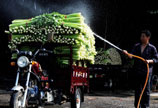Change in banks' cash reserves aimed at boosting agriculture
By Zhao Yinan (China Daily) Updated: 2014-04-17 07:11Reduction for qualified rural institutions expected to ease loans at grassroots level
China will reduce the amount of cash that village commercial banks keep at the central bank to increase financial support for the agricultural sector, the State Council decided at a Cabinet meeting on Wednesday.
The reserve requirement ratio will be reduced for qualified rural commercial banks and cooperative banks in counties, as part of the packaged policies that Premier Li Keqiang endorsed at the meeting.
|
 |
Li did not state when and by how much the reserve requirement ratio would be lowered for lenders, saying only that an appropriate reduction would be made for qualifying banks.
Billions of yuan will be released into the market, said Huang Yanxin, deputy director of the economic management department under the Ministry of Agriculture, as these grassroots banks will be able to take back their deposits from the central bank.
It is unclear at the moment where that money will flow, Huang said. But a "certain percentage" of deposits must be used to support the local agricultural sector, the State Council decided at the meeting.
"This will make it easier for rural residents and the agricultural economy to get loans, but the government also has to keep an eye on the outflow of the money in case they choose to enter high-risk sectors," Huang said.
The central bank sets different reserve requirement ratios for Chinese banks that depend partly on the scale of their lending business. The ratio stands at 20 percent for China's biggest banks, which are generally subject to the most stringent requirements.
The ratio for rural cooperative banks ranges from 13 percent to 14.5 percent, while the ratio for rural commercial banks is about 18 percent.
Huang Daowei, deputy chairman of the Guangxi Zhuang autonomous region, told People's Daily during this year's two sessions that the money deposited at the central bank by the cooperative banks and commercial banks in rural Guangxi totaled 200 billion yuan ($32.14 billion) in 2013.
- Leaving on a jet plane
- US business whips Shanghai's 'wave of capital migration'
- Top 10 countries with highest GDP in 2013
- Change in banks' cash reserves aimed at boosting agriculture
- Cheaper coal imports cause losses locally
- China stock index futures close mixed Wednesday
- China releases first monthly nonferrous metals index
- Alibaba reports strong growth before IPO


















